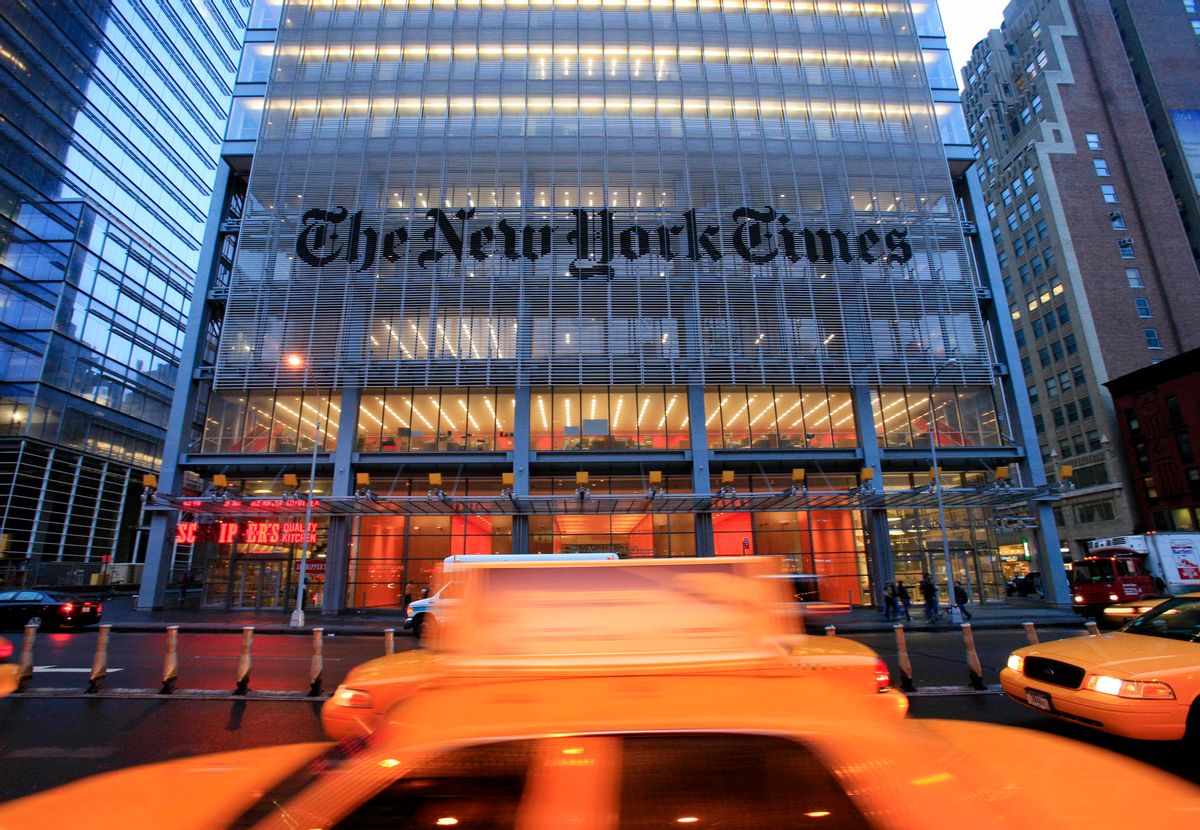When The New York Times decided to throw a sop to Trump-ite conservatives by hiring erstwhile "Wall Street Journal" scribe Bret Stephens, many liberals and moderates reacted to that decision with dismay. There was particular concern that Stephens would import his penchant for climate science denialism into the Times, a fear that was validated when Stephens devoted his very first column to that subject.
Now there is concerted pushback against Stephens' brand of alternative facts. It started on Monday, when the Times ran a correction to his original op-ed stating that "an earlier version of this article misstated the area that warmed by 0.85 degrees Celsius as noted in the 2014 Intergovernmental Panel report. It was the globally averaged combined land and ocean surface, not only the Northern Hemisphere."
Now a group of climate scientists have published an open letter demanding that the Times go even further with its correction.
"The subsequent correction was inadequate, failing to note, for example, that Stephens understated the warming, and that the record warmth in each of the past three years magnifies this mistake," the letter points out. The scientists who signed the letter also take issue with Stephens' use of the term "modest" to describe the extent of climate change and the way he "mischaracterizes both the certainties and uncertainties regarding climate change, and misrepresents how science reports uncertainties." They also point out that he cherry-picks his data by using the logic that "risk management should only be guided by the possibility that warming and its impacts could be less than the best estimate, and not the possibility that it could be more."
In addition to urging the Times "to publish a more comprehensive correction to the inaccuracies that appeared in Stephen’s column and to avoid such errors in the future by fact checking columns as carefully as they do news stories," they also insist that while "there is certainly a place for a variety of well-informed opinions when it comes to societal responses to climate change. But it must be made clear that there are facts that are not subject to opinion."
Despite this public dressing down, Stephens returned to his climate change denialism in his Thursday column, this time using ethanol and other biofuels as the subject of discussion. He now claims that has been "accused of obscurantism, closet climate denialism and willful misdirection — all for the crime of insufficiently attesting to the dangers of a warming trend I do not deny."
Let's see if his critics agree with that modest characterization of his pseudo-science.
[jwplayer file="http://media.salon.com/2017/05/367f244a27801ef893720f5cc4992aa5.mp4" image="http://media.salon.com/2017/05/05b933a5a2c19a87eb3fae0c86aaf000-1280x720.png"][/jwplayer]

Shares